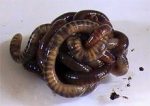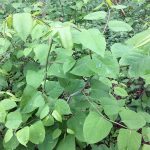Researchers Participants in the Postgraduate Program
Carolina Goradeszky
Chris Dupuis
Daniel Kok
Fleur Ordoukhani
Gabriela Karolczak
Ive Leemans
Jaime Llopis
Julia Clever
Karl Philips
Lucia Rainer
Maité Liébana Vena
Nibia Pastrana Santiago
Raquel Santana de Morais
Research End Presentation
Robin Amanda Creswell Faure
Partners
Buda Kortrijk
PAF Performing Arts Forum
Contributors for workshops
Alessandra Coppola
Ana Hoffner
Claudia Bosse
Elke Van Campenhout
Juan Dominguez
Michael Kliën
Nicolas Galeazzi
Peter Stamer
Vladimir Miller
Coordinators a.pass
Elke van Campenhout
Lilia Mestre
Mentors
Claudia Bosse
Nicolas Galeazzi
Peter Stamer
Vladimir Miller
21-25 / 01 / 2013
‘NOT QUITE, NOT RIGHT’
(Bodies within Postcoloniality)
a.pass Basics workshop by Ana Hoffner
How is a body transformed into an image and how does an image of the body emerge as representation? How are images of the body constructed through differences which are emphasized or hidden? We will start the workshop by having a closer look at stereotypes and visual vocabularies for representing difference by reading basic texts on representational critique by Stuart Hall. Then we will discuss basic concepts of Postcolonial Theory such as Orientalism, Subalternity, Ambivalence, Hybridity and Mimicry by Said, Spivak and Bhabha. The aim of the workshop is to enter these notions through the visual field, therefore we will use the method of Close Reading in order to connect them with the knowledge production within the works of Isaac Julien, Trinh T. Minh-ha, Angela Melitopoulos, Tanja Ostojic and others. In the last part of the workshop we will try to relate the questions raised in the workshop to contemporary societies of global migration and our own artistic research especially the image production within it.
26 - 27 / 01 / 2013 & 29 / 01 - 02 / 02 / 2013
‘UNFOLDING SENSIBILITIES’
workshop by Juan Dominguez
This workshop takes place in two parts, first in Buda Kortrijk to the curated performance program of Juan Dominguez : ‘Somewhere Between Fiction and Reality’ and then, the workshop ‘Unfolding Sensitivities’ at a.pass in Brussels.
Usually we, human beings, share interests, share situations, share work, spaces, leisure, love. We do it defining our interests, our identities and our territories. We are used to be effective, to not waste time, to feel uncomfortable if we don’t get what we want, we like to be safe.
In this lab we are going to contaminate each other, we are going to lose ourselves, we are going to find and not to seek for, we are going to laugh a lot, we are going to decide, to create our own work conditions, to auto generate our resources, to work together. Clearly, we will fail miserably. But only if you want, if you don’t want, don’t come!
In case you need a bit more info about what we will do:
We will work through situations and practices
We will discuss about the need of doing what we do
We will reflect about the concerns of each other
We will accumulate and document experience
We will unfold perceptions aspects of space and time
We will in a way make a trip towards the nearest unknown
04-08 / 02 / 2013
‘RE-IMAGINEERING THE MACHINE’
workshop by Vladimir Miller and Elke Van Campenhout
In this five day workshop we work hands-on on the creation of performance 'machines', inspired by the everyday disciplinary machines that regulate our lives. In our practice we try to re-connect to an environment that is largely manifested and mediated through technological, capitalist, moral and security apparatuses that shape our sense of belonging, of mobility, and our innermost desires. Through a series of case studies we try to reinterpret the machines we know very well, but normally try to overcome by ignoring or looking awry. In this workshop we try to do the opposite: we embrace the machine and its disciplinary rigour but try to turn around its functionality: no longer producing the self-evident affirmation of the social norm, but twisting its capability for change in perception and experience.
11-15 / 02 / 2013
‘CHOREOGRAPHING AS AN AESTHETIC OF CHANGE’
workshop by Michael Kliën
Michael Kliën outlines a fundamentally rethought understanding of ‘choreography’ as a practice vitally relevant to current social and political processes. Choreography as an ‘Aesthetics of Change’ is concerned with the workings and governance of patterns, dynamics and ecologies: the choreography of the living. If the world is perceived choreographically, namely as a moving matrix of relations, interactions, constellations and proportionalities, the creative practice of choreography aims to engage these relations or set specific conditions for relations to emerge.
The workshop outlines choreography as a deeply political practice, unfathomably entwined with ways in which we perceive the world. Seen through a connecting framework to other fields of human knowledge (such as philosophy, physics, formal composition, sociology, anthropology, etc) participants are encouraged to recognize and challenge epistemological assumptions inscribed in the act of creation. Discussing and demonstrating a series of methodologies, the workshop explores structures and dynamics to be found in and between humans, in and between ideas as well as within the overall fabric of contemporary reality.
The workshop will also include with an introduction to ‘Social Dreaming’, an experimental psychoanalytical practice designed by Gordon Lawrence at the Tavistock Institute in London during the 70’s.
25 / 02 - 01 / 03 / 2013
‘SOUND GARDENING’
workshop curated by Alessandra Coppola
The choices the gardener makes to shape the garden result from the knowledge of how different soils accommodate different forms of life, in which ways these species develop, grow, expand above and under the ground as well as how they interact with each other and the environment. Sounds, unlike plants, do not possess such developed taxonomy; nevertheless we expect to identify various forms of sounds' "biotopes": where, when, and how do sounds do appear in the city.
We will propose a work of observation and analysis of the urban sonic territories in order to "draw" acoustic maps of particular locations. As we won’t be relying on scientific measurements, but rather on perception and senses, our maps will differ from the noise pollution’s maps; we will try to define various given soundscapes in terms of the atmosphere they create, rather than formal units of measurement.
Our practices aim to observe, analyze and understand the relationships between soundscape and atmosphere in an urban contexts, and eventually propose actions to alter a given situations with a sound-designing ethos. We expect this approach to be highly informative on the action agency and function sound has in shaping atmospheres;
It will also be a study of urban soundscape from multiple viewpoints: phenomenological, poetic, physic, architectural, social, musical…. We will try not to impose any aesthetics or practice of creation, but be open to as many perspectives as possible with the reception of soundscapes.
04 / 03 - 16 / 03 / 2013
‘THEATER OF MEMORY - POLITICAL UNDERSTANDING OF THE SELF’
workshop by Claudia Bosse
I am interested in the structure of our memory according to spatial structures which are the conditions of daily routines of our organisation of knowledge, practice, emotions, thoughts. The grammar of the spaces we are producing are structuring our thoughts and imaginations. I would like to work on try-outs and analysis of space, and spatial production between the concepts of theatre, city and parliament, the relations between political, social and individual space and its particular organisations. The memory, is in a way the archive of consciousness of our experiences. Following Guilio Camillos concept of ‘theatre of memory’ (teatro del mundo) as a conceptual arena of thoughts and an encyclopaedic ritual for one spectator, I would like to develop try outs of this concept according to individual concepts of the participants. I would be interested to co-relate this concept of theatre of memory to the concept of the cartography of the self. Cartography of the self as a didactic machine for self construction, as a space related creation of cartographies inhabited with embodiments and speech acts. The aim would be to work on tools to transfer interests and methods into a spatial appearance, to make them understandable and possible for collective discourse. This discourse should relate a combined body - thought - space - voice practice. Thinking in spaces, unfolding thoughts in space. Embody ideas. The try outs should be transferred in different spatial contexts and simultaneous settings as well as transferred into the public space.
Its all about the production of space. production of thought. production of practice. production of self. production of art. production of analysis. production of aesthetics, production of politics. production of relations. production of memory. production of desires, production of ethics...
18 - 22 / 03 / 2013
‘THE ADOPTION PROJECT’
workshop by Peter Stamer & Nicolas Galeazzi
How do you position yourself to your art?
How tight is the bond between you and the issues or ideas you are working with?
What if you would release this bond and lend out parts of your research temporarily to someone else?
The Adoption Project deals with the ties and habits between you and your artistic practice. It challenges the perspectives and positions you engage with in your artistic process and separates them from your personal involvement by handing them over to a different outlook, practice, or routine for a certain period of time. A clearly defined section of your project will be packed in a 'box' and given up for adoption, while you will take a part of someone else's research temporarily under your 'protection'.
In this sense the Adoption Project aims to facilitate you with tools to put your work in a public context long before it is 'completed'. We understand this process as an effective instrument of research.
















